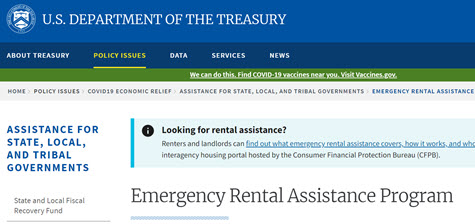The House of Representatives passed a $3.5 trillion budget resolution Tuesday, after Speaker Nancy Pelosi (D-CA) promised moderate Democrats a September vote on the Senate-passed bipartisan infrastructure bill to garner their support for a framework that sets-up the “reconciliation” process. (Washington Post, Aug. 25)
Why It Matters
A group of 10 Democratic moderates led by Rep. Josh Gottheimer (D-NJ) agreed to allow the House to consider the $3.5 trillion budget resolution – encompassing “human” infrastructure initiatives – contingent on a vote for the “physical” infrastructure bill. For the past several weeks, the moderates insisted they would not move on to the budget package unless the Senate-passed bill also received a House vote. (Roundtable Weekly, Aug. 20)
The Roundtable’s summaries of issues affecting CRE that are in play as part of the “physical” and “human” infrastructure packages are available:
CRE Impact
What’s Next
Getting both packages to President Biden’s desk for his signature will be a major challenge. Congressional leadership must consider demands of centrists who balk at the $3.5 trillion price tag for “social” infrastructure, and progressives who believe the $550 billion in new spending for “physical” infrastructure is not big enough to address issues such as climate change. (CNBC, Aug. 25)
When Congress returns after Labor Day, policymakers will face other critical deadlines in addition to their anticipated actions on the infrastructure and reconciliation packages. Legislation is needed after the Treasury Department exhausts its “extraordinary measures” in mid-September to avoid defaulting on the national debt. Congress is also expected to consider a “continuing resolution” to put stop-gap spending measures in place before federal government funds run dry on Sept. 30. (Politico, Aug. 25)
The U.S. Supreme Court struck the Biden Administration’s nationwide ban on residential tenant evictions yesterday, ruling that only Congress has the authority to enact such a moratorium through legislation. (New York Times, Aug. 27; Wall St. Journal, Aug. 27)
The Legal Challenge
The high court’s conservatives issued a majority, 6-3 opinion striking the latest iteration of the eviction ban issued by the Centers for Disease Control (CDC) on Aug. 3. (Roundtable Weekly, Aug. 20). “If a federally imposed eviction moratorium is to continue, Congress must specifically authorize it,” the Justices decided.
Focus on Disbursing Rental Assistance

While the Supreme Court’s ruling is the end point for litigation challenging the Biden Administration’s actions, progressives in Congress could attempt to re-impose the eviction ban via legislative enactment in the coming weeks.
The unanticipated commitment by Speaker Pelosi to allow a stand-alone vote on the bipartisan Senate infrastructure bill no later than September 27 has scrambled the Congressional calendar and put increased attention and focus on the potential for major tax changes.
Why It Matters
Industry Concerns
Contact Congress